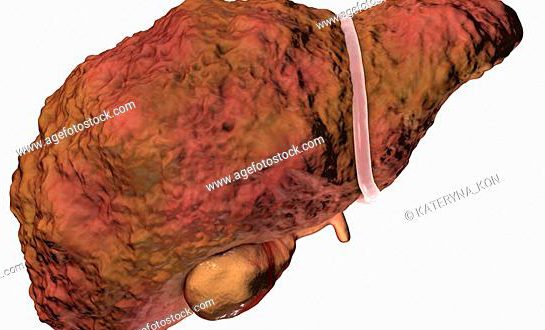Related Articles
By Salisu Na’inna Dambatta
Laboratory tests conducted on patients in many teaching hospitals in the country indicate a widespread prevalence of Hepatitis B virus, a major cause of liver diseases.
In an article co-authored by Nigerian healthcare workers in the Journal of Biosciences and Medicine, Vol 9 No. 7, 2021, the liver was described as “the main internal organ.
It has more functions than any other organ, and it can support life even though only 10% – 20% of the liver tissue is functioning.”
The authors added, “the significant role of the liver includes purification, synthesis of proteins and cholesterol; inactivation of hormones and the regulation of the amount of testosterone in the blood; and storage of sugars, fats and vitamins.”
Sadly, the liver can suffer inflammation, which they said has many causes, “such as toxin, biochemical, pharmacology, bacterial or immune-mediated attack.”
Other reports say more than 1.5 billion people in the world suffer from various types of chronic liver diseases and two million of them die annually.
One report says, “In Nigeria, 2-20% of the population or 35 million people, are infected with hepatitis B and C virus with a prevalence rate of 4.3%-23.3% and 0.5-15% reported from different parts of the country.”
The report was specific thus, “A prevalence rate of 4.3% was reported from Port Harcourt, 5.7% from Ilorin, 11.6% from Maiduguri, and 8.3% from Zaria, 6.78% from Ado-Ekiti among pregnant
women; 13.50% from Lagos, 11.50% from Abuja Urban among HIV patients with a
seroprevalence of 23.3% been reported among patients attending all clinics in Kano.”
Experts linked this widespread prevalence to low vaccination rate and ineffective national policy on the treatment and prevention of chronic liver diseases.
The World Health Organization (WHO) in 2018 said deaths caused by liver diseases in Nigeria reached 60,044 or 3.10% of the total deaths recorded.
To tackle the widespread prevalence of liver diseases in Nigeria, government-owned Aminu Kano Teaching Hospital is readying to start liver transplantation.
The Chief Medical Director (CMD) of the hospital, Professor Abdurrahman Abba Sheshe has anmounced during the First Liver Surgery Symposium on Advancing Liver Surgeries in Nigeria organised by the AKTH Department of Surgery in 2020 that, preparations were underway to
start liver transplantation in the hospital.
The CMD lamented the high manifestation of liver diseases in Nigeria.
“Proactive actions should be applied to reduce the mortality, which is 100 per cent,” he said.
In a proactive action the hospital has trained consultant surgeons and other specialists in a liver surgery team and procured many of the required technical equipment for the procedure.
However, more special equipment will be required in the long term. The government and philanthropists should provide the additional equipment to the hospital.
Happily, there is a pending promise by the Chairman, Isyaka Rabi’u and Sons (IRS), Rabiu Isyaka Rabiu.
He promised to mobilse members of his family and other donours to establish a National Digestive Disease and Liver Transplant Center at the hospital to treat liver and other gastroenterology disorders.
This is apt as research findings in an article published by SOGHIN in the Nigerian Journal of Gastroenterology and Hepatology Vol. 10 No. 1 in 2018 quoted Hepatologists saying that “establishment of a West African Regional Liver Transplant Center for capacity building is desirable.”
It is not late for Nigeria and West Africa to to have such a Centre or engage in liver transplantation.
This is because the first human liver transplantation was done only in 1963 by Thomas Earl Starzl, an American physician, researcher, and expert on organ transplants.
A consultant surgeons who was trained in liver transplantation abroad, Dr. Garzali Ibrahim Umar, said liver transplantation can become necessary for patients with liver cancers, liver cirrhosis and acute liver failure.
Certainly starting liver transplantation at the hospital could bring succor to patients of chronic liver diseases and reduce the high mortality rate among them.
Given the obvious national need to tackle liver diseases in Nigeria, AKTH deserves every support to achieve its ambition of bringing the super specialty liver transplantation procedure to the doorsteps of Nigerians.
 THESHIELD Garkuwa
THESHIELD Garkuwa




